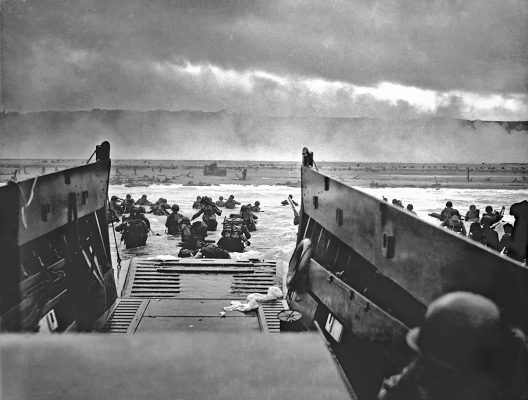What if D-Day Had Never Happened?: The Enduring Significance of the Allied Invasion of Europe 80 Years On
Eighty years ago this week the epic invasion of Allied air and ground forces swept across the Normandy peninsula to help defeat Adolf Hitler and his German war machine during World War II.
A battle of more than 150,000 Allied troops, who fought on the beaches and in the hedgerows, D-Day launched June 6, 1944, and remains immortalized in books, movies and television shows—and in the sacred cemeteries on the French coast.

For all its magnitude, the battle didn’t decide the outcome of the war, as German forces were already weakening in the face of the Soviet army on the Eastern Front, says Professor Alan Allport, the Dr. Walter Montgomery and Marian Gruber Professor of History in the Maxwell School of Citizenship and Public Affairs.
However, D-Day and its strategic importance finally gained Allied forces their footing in Europe and had long-lasting implications for a Western Europe free from communism and enduring American international diplomacy, says Allport, who is the author of “Britain at Bay: The Epic Story of the Second World War 1938-1941” (Knopf, North America).
In this Q&A with SU News, Allport further explains the significance of D-Day and its impact generations later. For any media who wish to schedule an interview with Allport, please reach out to Vanessa Marquette, media relations specialist, at vrmarque@syr.edu.


